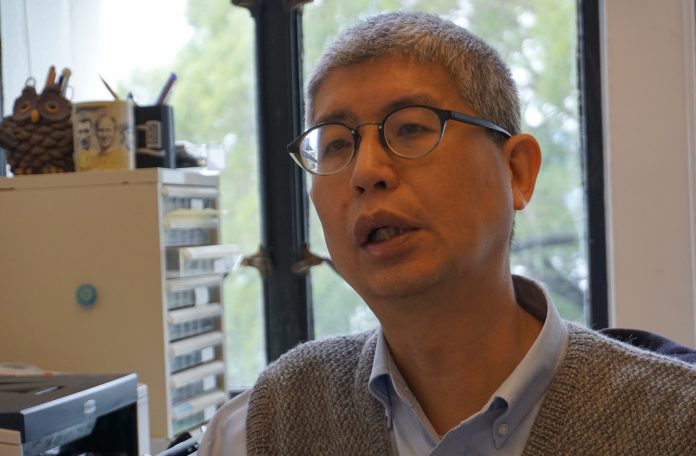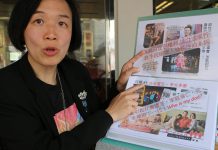By Jasmine Ling
Political scientist Ma Ngok says the pro-democracy camp is likely to win all three geographical seats in tomorrow’s Legislative Council By-election, although the margin would be highly dependent on the voter turnout rate. Ma, an associate professor at the Department of Government and Public Administration at the Chinese University of Hong Kong says a high turnout rate would also be decisive for pro-democrat Paul Zimmerman’s chances of winning in the Architectural, Surveying, Planning and Landscape functional constituency.
Ma’s predictions are based on the historical share of votes obtained by the pro-establishment and pro-democracy camps in previous elections and by-elections, which give the pro-democracy camp an an edge in the geographical constituencies. As tomorrow’s elections – in Kowloon West, Hong Kong Island and New Territories East – will be decided by a single-seat single-vote system and both camps are united behind a single candidate, it should be a straightforward race.
Of the three constituencies, Hong Kong Island saw the smallest difference between the pro-democratic and pro-establishment vote in 2016. But Ma thinks the pro-democracy camp still has a higher chance of winning the seat. He says the constituency is the one most affected by the disqualification of an electoral candidate – in this case, Demosisto’s Agnes Chow-ting who was the highest profile candidate to be barred. Ma adds that Au Nok-hin, who was seen as Chow’s backup candidate, has run a good campaign.
The central issue of the pro-democracy camp’s campaign is opposition to the disqualification of legislators following ‘oathgate’. As two of the ousted lawmakers, Youngspiration’s Yau Wai-ching and Baggio Leung Chung-hang belonged to the localists’ camp, Ma thinks the pro-democracy camp might be able to pick up some localist votes, although the extent they are able to do so is uncertain.
However, Ma does not expect a high voter turnout given the subdued election atmosphere so far. By-elections tend to attract fewer voters anyway and media coverage of this by-election seems to be limited. There have only been a few election forums and unlike previous elections, few commissioned polls to track the popularity of candidates.
“If I compare this by-election to the 2016 New Territories East by-election, it’s obvious that the mood of discussion was [then] far more intense”, says Ma.
Still, Ma says it is hard to know what impact this will have on the final results. As the voter turnout will likely be lower than for general elections, both pan-democracy and pro-establishment camps may not be able to fully hold onto their bases in this by-election
While the pro-democracy camp is campaigning around the issue of disqualification, Ma says the pro-establishment camp does not appear to have a persuasive campaign issue to counter their rivals. Government-friendly forces are focusing on advocating against filibustering in the legislative council However, as Ma points out, filibustering is no longer possible after the amendments to the Legislative Council’s rules and procedures were passed last December.
“No matter who is winning in this election, it won’t affect the fact that there should be little chance of filibustering in the Legislative Council,” he says.
In fact, the outcome of Sunday’s poll will have little impact on the overall political landscape, says Ma. Rather it would send a “political message” one way or the other.
“It sends a very different political message if voters are very angry about DQ and come out to vote for pan-democrats, and if they can re-enter [the legislative council] with a large margin, or if they’re really disillusioned, there’s a low turnout rate and a couple of pro-establishment [candidates] are elected.”
Edited by Nancy Mak










































